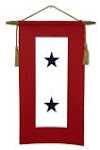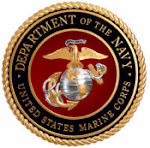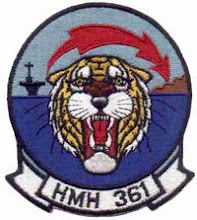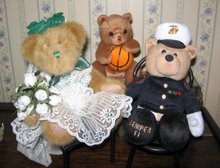"Iraq could be......," breathed Senator Chuck Hagel (R, France, as one National Review wag put it) another VIETNAM!"
In one little tiny way, I hope so.
I live in Toronto, Ontario (Canada), not the easiest place for an American to live. I've lived in Canada more or less steadily for 34 years, the first few on the west coast where my college friends were laid-back British Columbians, with a few down-to-earth Saskatchewan prairie folk and Manitoba farm boys. (There was only one from Ontario, and he'd been to Woodstock!) They had a few doubts and mythologies about Americans, but the full blast of Canadian anti-Americanism makes itself felt only when you cross into Ontario-- southern Ontario, to be specific (where enough Canadians live to tilt all elections their way).
Like the United States, Canada is an immigrant nation, but the immigrant in-flow of the last 40 years can be readily compared to that of the United States between, say, 1880 and 1930. This makes for a very colourful life, especially in cities like Toronto, where being cosmopolitan was quite enjoyable before it became a government-grant project called Official Multiculturalism... but I digress.
One of the sizeable immigrant waves which touched all major centres across Canada was from Vietnam, during the years of the "boat people." I've heard harrowing stories from teenagers, delicate and unassuming young girls in a high school where I was practice-teaching, about their encounters with pirates as they sailed on over-loaded boats towards a better life. What I've really enjoyed about the Vietnamese presence here, though, is the kind of unexpected places they turn up.
One of these was World Youth Day 2002, the final such venture by Pope John Paul II to meet the young Catholics of the world. That world included a large group of Vietnamese camped out on the field near my group at Downsview airport. They caught my eye because they had set up a low, flat awning in the scorching sun, and were seated under it on the ground, wearing their squat-conical straw hats and chattering away in twos and threes, as their yellow and red flag flapped above them. Out there with the hundreds of thousands from all over the world they would not necessarily have caught my eye, except for the fact that the sight of them was like a snapshot I had seen a hundred, maybe a thousand, times over the long years of the war that came into our living rooms.
The picture made me catch my breath, and I was seized with the thought of what a very long journey it has been-- from the days when many were convinced that a land, a people, and culture had been pounded into permanent oblivion. Yet here they were, people too young to remember the bombs and shootings, picnicking on the grass and celebrating, in peace and freedom, the faith that had come to them from French conquerors, survived Communist persecution, and sustained them through a nightmare. It was much more a Catholic moment for me, but there was a sense in which it was an American one too, in the sense that even after such a disaster, there is resolution, there is forgetting, and there is hope.
Any doubts I may have had about whether it was appropriate to have nurtured little American "warmies" at the sight of my Vietnamese co-religionists in 2002, were put to rest some 8 months later. It was a miserable April, 2003. Canada had declined (and agreed, and declined, and supported, and deplored, and sidestepped, and refused) to join the Coalition which invaded Iraq-- we'll leave those arguments to the historians who have the daunting task of sorting out the Chrétien regime. But the political decision had not been enough to satisfy a number of high-profile members of government and the media. So Americans, especially their President, had been subjected to a series of public taunts and insults worthy of 8-year-olds in a sand-box spat, in addition to the usual bloviated outpourings of anti-American condescension and hostility in the press.
Some Friends of America had had enough. They formed a group of that name, and decided it was time for a rally-- one with no political agenda, no position on the war, just a way of demonstrating publicly that, for better or for worse, America has steadfast friends north of the border.
One of the most active organizers of this rally was Erica Basnicki, sister of a classmate and football teammate of my youngest son, and daughter of a man who had gone to a business meeting on the top floor of one of the World Trade Center towers on the morning of September 11. (I had met her and her mother at the American Consulate July 4th party the previous summer, and learned a number of interesting things which could be summed up in Maureen Basnicki's comment that "the American President has taken much better care of me than my own government.")
 So there we all were, thousands (the estimate is somewhere between 7 and 10) standing in the sleet and cold, wet and shivering, waving flags and expressing the belief that the long history of Canadian-American friendship could survive this "sticky patch."
So there we all were, thousands (the estimate is somewhere between 7 and 10) standing in the sleet and cold, wet and shivering, waving flags and expressing the belief that the long history of Canadian-American friendship could survive this "sticky patch."There were lots of flags, mostly American, as well as Canadian and provincial. But it was nice to see some from other countries too. And then there was the real surprise-- the red and yellow flags, and a home-made yellow banner with big red letters reading "Vietnamese Friends of America."
 Well, who'd 'a thunk it. It wasn't supposed to go that way. A decade of slaughter in Vietnam was supposed to have made Americans, yet again, public enemy #1, the world's pariah, the ugliest of the ugly forevermore.
Well, who'd 'a thunk it. It wasn't supposed to go that way. A decade of slaughter in Vietnam was supposed to have made Americans, yet again, public enemy #1, the world's pariah, the ugliest of the ugly forevermore.There may have been no rational explanation for Vietnamese people, living in Canada, to think of themselves as particular friends of America. But something compelled them to make their banner, gather their flags, and come out, in the most miserable weather conditions urban Canada has to offer, to say "We are your friends" as the United States spearheaded the invasion of another country.
Maybe the ability to forget is the only explanation. But, if nothing else, it was a powerful lesson in the unfolding of history-- that nothing is entirely predictable, nothing is absolutely inevitable. Having said that, I'll dare to make a prediction, based on a too-little known fact: for the past two and a half years thousands of American military personnel have been forging genuine friendships with thousands of ordinary Iraqis. At the end of the day (however many years long that "day" will prove to be) these friendships will prove stronger than any of the high-level or underground hostility that seems to govern events at the present moment.
At the end of the day, America will have an ally in Iraq, and we will rally for each other in a hundred different ways. Will this be permanent, will it be without strife, will it escape the forgetting? Hm-m-m-m. There's France.... But then there's also England.... This too we will leave to the historians.

















